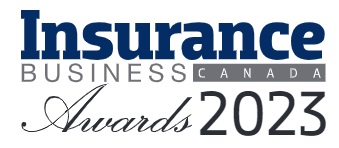![]()
The Women in Insurance Summit is a one-day event centered on the issues that matter most to women in the insurance sector. It gathers outstanding female leaders from across the industry, who share the skills and wisdom they have built up over the years on their way to the top. Among the topics they touch on are:
- Advancing diversity and inclusion
- Overcoming unconscious bias
- Pay equity
- Flexible work practices
Here’s the complete schedule of the eight Women in Insurance Summits being hosted in different parts of the world:

1. Women in Insurance Summit New Zealand
Date: February 28, 2023
Website: Women in Insurance Summit New Zealand
Venue: Hilton Auckland, Princes Wharf, 147 Quay Street, Auckland 1010, New Zealand
Speakers:
- Tanya Clews (head of claims, partnerships, and services, Ando Insurance)
- Lee-Ann du Toit (partner, actuarial and insurance services, Deloitte)
- Helen Fitness (founder, Quiet Rebel Consulting)
- Dasha Goryacheva (people and operations manager, Delta Insurance)
- Bronwyn Kirwan (chief sales and service officer, Fidelity Life)
- Nancye Maloni (home claims manager, AA Insurance)
- Jo McCauley (CEO, Southern Cross Travel Insurance)
- Beckie McCleland (chief risk officer, Partners Life)
- Complete list of speakers
Women in Insurance Summit NZ returns as a face-to-face event this year after two years of going online. The one-day insurance conference will bring together women leaders and D&I advocates who will discuss practical strategies for success, share career development insights, and help participants build essential skills for professional advancement.

2. Women in Insurance Summit Atlanta
Date: March 2, 2023
Website: Women in Insurance Summit Atlanta
Venue: Sheraton Atlanta Hotel, 165 Courtland St NE, Atlanta, Georgia 30303, United States
Speakers:
- Ania Caruso (Gallagher)
- Isabelle Dumont (Cowbell Cyber)
- Nan Fine (Markel Specialty)
- Lawanda “Elle Michell” Hall (Intelligent Intentions LLC)
- Casey Hartley (Everest Insurance)
- Scott Hornsby (AmRisc)
- Marissa Jennings (Zurich North America)
- Angela Lee (Marsh McLennan Agency)
- Taffy Jo Mayers (WTW)
Women in Insurance Atlanta returns this year with a live summit dedicated to empowering women and their allies, developing the next generation of leaders, and celebrating the achievements of women in insurance.

3. Women in Insurance Summit Chicago
Date: Not yet set
Website: Women in Insurance Summit Chicago
Venue: W Chicago – City Center, 172 W Adams St, Chicago, Illinois 60603, United States
Women in Insurance Chicago aims to unite the insurance industry over the common goal of diversity and empowerment. It will tackle how insurance leaders can continue to drive innovation, maintain employee engagement, and find new areas of growth and opportunity.

4. Women in Insurance Summit Canada
Date: Not yet set
Website: Women in Insurance Summit Canada
Venue: The Carlu, 444 Yonge St #7, Toronto, Ontario M5B 2H4, Canada
Women in Insurance Canada will continue its goal of empowering women, developing a new generation of leaders, and celebrating everything that the country’s insurance industry has achieved over the course of the last twelve months. The insurance conference will feature:
- Impactful speakers from leading insurance companies
- Insightful sessions on hot-button topics
- A dedicated time for networking and relationship building

5. Women in Insurance Summit Australia
Date: August 23, 2023
Website: Women in Insurance Summit Australia
Venue: The Fullerton Hotel Sydney, 1 Martin Pl, Sydney, New South Wales 2000, Australia
Women in Insurance Summit Australia will feature insightful keynote sessions, presentations, panel discussions, workshops, and networking activities led by influential leaders from the industry. Highlights include:
- Presentations on innovation and digital transformation
- Personal branding
- Hybrid management strategies
- Inclusive decision making
- Mental wellness at the executive level

6. Women in Insurance Summit New York
Date: Not yet set
Website: Women in Insurance Summit New York
Venue: 583 Park Avenue, New York, New York 10065, United States
Women in Insurance Summit New York will provide insurance professionals with an opportunity to build new bonds and explore leadership strategies. The insurance conference also aims to inspire these professionals to make changes in their careers and work with a purpose in an industry that is constantly innovating to be more digital and provide equal opportunities for men and women.

7. Women in Insurance Summit Los Angeles
Date: Not yet set
Website: Coming soon!
Venue: Sheraton Grand Los Angeles, 711 S Hope St, Los Angeles, California 90017, United States
California’s Women in Insurance Summit moves from San Francisco to Los Angeles providing a venue for insurance professionals to reconnect face-to-face for a day-long summit. The insurance conference will bring together women leaders and their allies in the industry and discuss a variety of pressing insurance topics, including gender equality and technological innovation.
.jpeg)
8. Women in Insurance Summit UK
Date: Not yet set
Website: Women in Insurance Summit UK
Venue: The Tower Hotel, St Katharine’s Way, London E1W 1LD, United Kingdom
The last event in the year for the series, Women in Insurance UK builds on the gains it has made last year, returning in November to provide participants with an opportunity to connect with some of the industry’s elite leaders and engage in deep conversations around establishing an inclusive culture that supports diverse professionals.

Specialty Insurance Summit
Date: April 27, 2023
Website: Specialty Insurance Summit
Venue: Arcadian Loft Toronto, 401 Bay Street, Simpson Tower, 8th floor, Toronto, Ontario, Canada
Speakers:
- Paul Croft (COO, Canada, Aon)
- Simon Hlywa (president, CEO, Calefy Inc. & Fuse Insurance Ltd)
- Mohamed Jama (Jones DesLauriers Insurance Management Inc.)
- Fady Kamel (All Risks Insurance Brokers)
- Joshua Krenus (president & CEO, Alteri Insurance)
- Kevin Lea (president, Fuse Insurance Ltd)
- David Leadbetter (president & CEO, Avail Group Of Companies)
- Michael Loeters (SVP – commercial insurance, PROLINK)
Insurance Business’ first-ever Specialty Insurance Summit will gather the biggest names in the specialty insurance market, who will share their secrets to success and give updates on how the sector is changing. They will discuss hot topics in the specialty insurance line, including:
- Growing your business in a time of economic upheaval
- Mastering cybercrime insurance
- Managing catastrophe coverage
Participants can also get direct access to more than 20 MGAs, giving them the opportunity to build their network and develop actionable strategies for the year ahead.

Date: May 11, 2023
Website: IB Innovation Summit Australia
Venue: The Fullerton Hotel Sydney, 1 Martin Pl, Sydney, New South Wales 2000, Australia
IB Innovation Summit is Australia’s leading insurance innovation event, which gathers the country’s top insurers for a day of panel discussions, case studies, and presentations addressing the most pressing issues the insurance industry faces on its way to digital transformation. The insurance conference is presented in two concurrent streams. These are:
1. Claims innovation
In a competitive market, insurers are looking to transform their claims-handling process to improve customer satisfaction, reduce claim decision cycle times, and minimize costs. IB Innovation Summit’s claims innovation stream addresses issues and presents strategies on how to streamline claims processing to effectively communicate with customers and achieve operational efficiency.
2. Insurtech
In this stream, IB Innovation Summit discusses the role digital transformation plays in helping insurance companies deliver positive customer experience and drive operational efficiency to remain competitive in an increasingly digital environment.
Insurance Business will also hold a pair of events recognizing the outstanding achievements of different insurers and insurance professionals.

1. Insurance Business Australia Awards
Date: September 15, 2023
Website: Insurance Business Australia Awards
Venue: The Fullerton Hotel Sydney, 1 Martin Pl, Sydney, New South Wales 2000, Australia
The annual Insurance Business Awards will return for its sixth edition to showcase the achievements of Australia’s leading brokers, brokerages, insurers, underwriting agencies, BDMs and other industry professionals. Over the years, it has become the leading independent awards event for the nation’s insurance industry.

2. Insurance Business Canada Awards
Date: Not yet set
Website: Insurance Business Canada Awards
Venue: Liberty Grand Toronto, Exhibition Place, 25 British Columbia Road, Toronto, Ontario M6K 3C3, Canada
Now in its eighth year, the annual Insurance Business Canada Awards has been recognized as the country’s leading awards program in the insurance profession. The event honors the exemplary achievements of Canada’s best brokers, brokerages, insurers, underwriters, MGAs, and risk managers in the past year.
If you are a specialist looking for insurance conferences that cater to your line of work, you can also sign up for the following events.
Cyber insurance conferences
Cyber Symposium
Date: February 14-15, 2023
Location: New York, USA
The two-day insurance conference on cyber liability discusses cyber exposures and emerging issues that will impact the market in the coming year. Participants will earn Continuing Education credits.
Cyber Risk Insights Conference
Date: April 19, 2023
Location: London, UK
The one-day insurance conference topics will tackle critical privacy and security issues confronting risk professionals and their organizations. A panel of industry experts will offer insights on how to manage risk in a rapidly evolving threat landscape.
Cyber Risk and Insurance Innovation USA 2023
Date: May 16-17, 2023
Location: Chicago, USA
This annual event addresses cyber issues affecting insurance professionals and policyholders, including cybersecurity risk assessment, underwriting challenges, growth opportunities and market cooperation.
Life insurance conferences
LIMRA Distribution Conference
Date: March 1-3, 2023
Location: Orlando, USA
This insurance conference examines the vital role that key distribution channels play in the life insurance industry. It also shares strategies for industry players successfully manage distribution in the constantly evolving insurance landscape.
LIMRA Life Insurance & Annuity Conference
Date: April 24-26, 2023
Location: Salt Lake City, USA
This event provides life insurance and annuity professionals with cross-functional learning and networking opportunities around the development, operations, marketing, distribution, regulation, technology, and administration of individual life insurance and annuity products.
Property and casualty (P&C) insurance events
Complex Claims & Litigation Forum
Date: February 27-March 2, 2023
Location: Las Vegas, USA
This new insurance event aims to help insurers prevent and prepare for complex claims adjudication and settlement negotiations, and win cases if a claim has to go to court.
DEI Expanding Opportunity in Insurance Conference
Date: April 2-4, 2023
Location: Washington, D.C., USA
This event by the American Property Casualty Insurance Association (APCIA) gathers insurance thought leaders from across the US to discuss the current state of diversity, equity, and inclusion in the industry and share tactical ways on how insurers can move forward on the issue.
National Flood Conference
Date: June 4-7, 2023
Location: Washington, D.C., USA
Another APCIA event, this insurance conference brings together flood insurance professionals and stakeholders to learn the latest information on the National Flood Insurance Program and related topics from subject matter experts. Participants can earn Continuing Education credits.
Insurance technology (Insurtech) conferences
Insurtech Insights Conferences
Date: March 1-2, 2023
Location: London, UK;
Date: June 7-9, 2023
Location: New York, USA
TBA: Hong Kong, 2023
Happening in Europe, the US, and Asia, this series of insurance conferences brings together senior industry executives, who will guide insurers in their digital transformation journey and help them drive investments in emerging technologies and innovations.
Insurance Innovators USA
Date: April 17-18, 2023
Location: Nashville, USA
By attending this insurance conference, participants can hear expert opinions, spot important trends, and uncover the best opportunities for innovation in their organizations. This year’s topics include AI and analytics, climate change, the Great Resignation, Web3, and the Metaverse.
Global InsurTech Summit
Date: April 18, 2023
Location: London UK
The event will host hundreds of senior decision-makers alongside insurtech founders and tech innovators in Europe. Participants can network with senior industry leaders and keep abreast of the latest innovations in the insurance industry.
Health insurance conferences
AHIP 2023 Medicare, Medicaid, Duals & Commercial Markets Forum
Date: March 14-16, 2023
Location: Washington, D.C., USA
This insurance conference focuses on the most pressing policy priorities, regulatory updates, and emerging issues for Medicare, Medicaid, Duals, and the commercial market.
14th Annual Global Health Insurance Conference
Date: October 6-7, 2023
Location: Prague, Czech Republic
This edition of this annual health insurance conference will discuss how insurers and healthcare providers can develop a healthcare ecosystem in an era of new data-sharing regulations and how to incorporate digital technologies to enable long-term engagement with customers.
Are you looking forward to attending our Insurance Business events? Tell us what excites you the most about these insurance conferences in the comment box below.
Source



























.jpeg)


